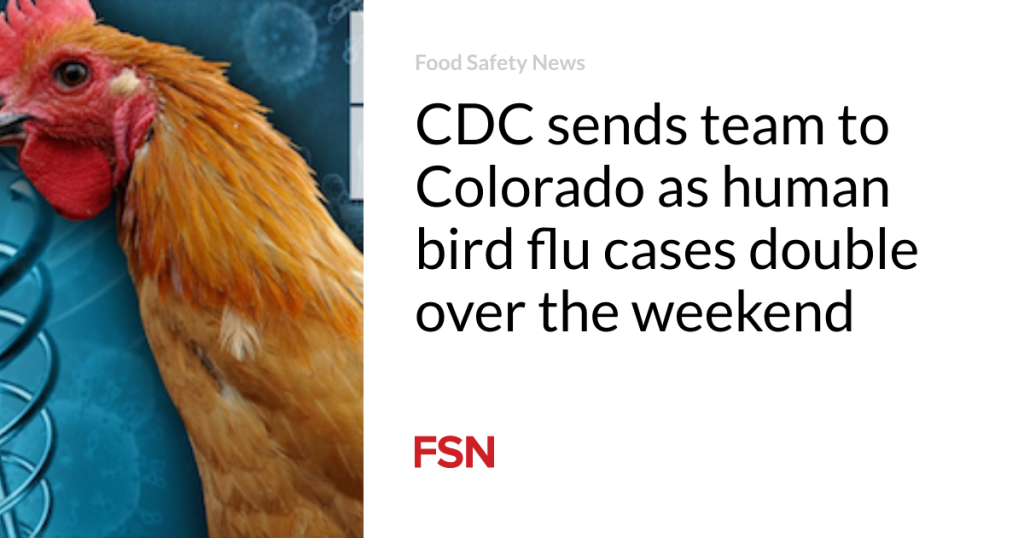A nine-person team from the federal Centers for Disease Control and Prevention has arrived on the scene in Colorado after the nation’s top infectious disease experts confirmed four more cases of highly pathogenic avian influenza in the state.
Four new cases of H5 avian influenza have been reported, with a fifth pending, after an outbreak in northern Colorado over the weekend, doubling the number of cases since last weekend.
The state reported three provisional positive cases on Friday, after which the state also tested a fourth sample as provisionally positive on Friday.
CDC is also aware of one additional preliminary positive case in Colorado, which will be confirmed by CDC once samples arrive.
The new human cases were identified among farm workers involved in culling poultry at a poultry facility where the H5N1 virus outbreak has occurred.
A Colorado CDC team is assisting in evaluating the poultry outbreak and associated human cases. Based on current information, CDC reports that the risk to the general public from this outbreak remains low.
The CDC said the new cases in Colorado highlight the risk of contact with infected animals. Otherwise, Colorado and other states with H5 avian influenza outbreaks in cattle and poultry have not seen an unexpected increase in influenza activity.
As of the end of last week, there had been a total of five human cases of avian influenza in the United States, four of which were linked to contact with dairy cows between April 1 and July 3.
One case occurred after exposure to poultry (reported on April 28). The total number of cases in the United States has doubled due to the number of confirmed cases.
Colorado has requested that a CDC team be sent to the state to assist with the ongoing investigation. According to the state, all of the people who tentatively tested positive had mild symptoms and were poultry cullers at a poultry facility that has seen a multistate outbreak of the H5N1 virus, which has spread to wild birds and is causing outbreaks in dairy cattle and poultry.
The CDC offers the following advice to the public:
- People should avoid unprotected exposure to animal feces, bedding (litter), unpasteurized (“raw”) milk, or materials that have come into contact with or been in close proximity to birds or other animals suspected or confirmed to have A(H5N1) virus.
- CDC has issued interim recommendations for preventing, monitoring, and conducting public health investigations of human infections with A(H5N1) virus. CDC has updated recommendations for worker protection and use of personal protective equipment (PPE). Following these recommendations is important for reducing personal risk and limiting overall public health risk.
(To sign up for a free subscription to Food Safety News, click here.


